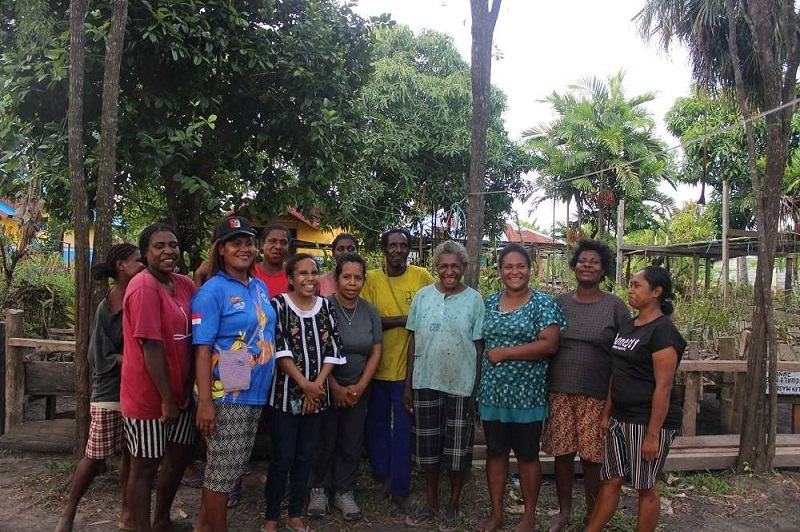
In an effort to support capacity building and the development of conservation partnerships in the Wasur National Park (TN Wasur) area, a number of target villages will be selected as locations in which the joint program will be implemented by FORCLIME and the Wasur National Park. For this reason, FORCLIME, working in conjunction with the Wasur National Park, completed a baseline survey from 8 - 12 November 2021 across five villages that had previously been identified based on the results of joint discussions. The villages visited were Wasur, Yanggandur, Rawa Biru, Tomer and Erambu-Toray. The five villages represent the Marind Anim Tribe from the Men-Gey Marori Tribe, the Kanume Sub-tribe and the Yeinan Tribe.
The data and information collected encompassed the geographical conditions, demographics and socio-economic-cultural conditions of communities, as well as various institutions, including customary institutions, and also land ownership status in relation to natural resource management and potential non-timber forest products. A division of tasks was implemented as regards the collection of this data and information. Specifically, the FORCLIME Papua Team conducted direct interviews with the community, while the Wasur National Park Team provided secondary data. An analysis of the collected data was then subsequently carried out by the two teams working together.
One of the interesting discoveries that emerged from the results of interviews with these communities is how local wisdom is essentially the basic capital that is used during the management of natural resources and manifests itself through traditions that are still being implemented to this day. One of these traditions is the Sasi system, which is known as “Sar” in the Kanume language. This system comprises a set of customary rules that regulate various prohibitions on the use of natural resources in locations or hamlets during certain periods. Sasi also relates to respect for relatives who have died and ceremonies are usually held after 40 days have elapsed since the death of a deceased relative. The ceremonies themselves involve the closing of access to certain areas in accordance with family agreements, usually for periods of between one and four years. In this regard, a Sasi location are often marked, for example, through the installation of coconut leaf stakes.
Information relating to such local wisdom is also set to be included in the report that will be published on the implementation of the survey. The implementation of the Sasi system remains very strong, especially in the village of Yanggandur, which was designated as a supported village by the Wasur National Park through the issuance of Decree of the Director-General of Natural Resources and Ecosystem Conservation No. SK 80/KSDAE/SET/KSA.1/2/2017.
The results of the baseline survey will ultimately be reported to the Head of the Wasur National Park. Said results will then be discussed by the relevant parties in order to determine the locations of the target villages in which the join programme of FORCLIME and the Wasur National Park will be implemented.
For more information, please contact:
Rut M Ohoiwutun, Junior Adviser for Community Forestry and Hutan Adat, Papua
Theodora Florida Resubun, Adviser for Sustainable Forest Management and Coordinator for Papua Province
Mohammad Sidiq, Strategic Area Manager for Sustainable Forest Management and Coordinator for Papua and West Papua Provinces






